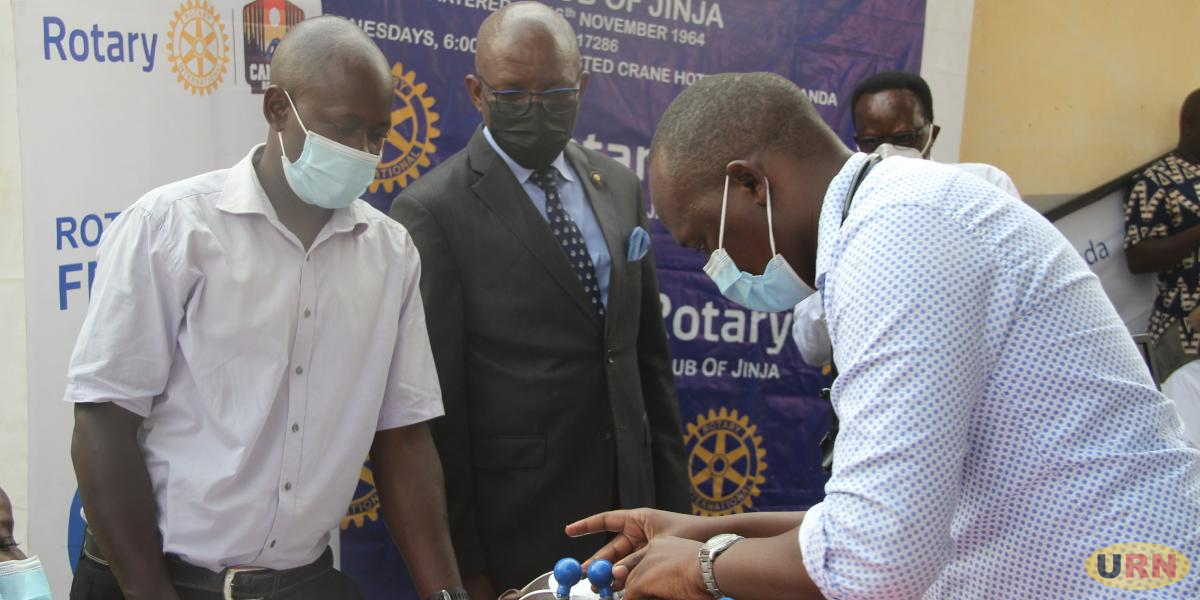Rotary International is in search of 100 children from Uganda with heart defects to benefit from fully sponsored surgery in India.
Dubbed the ‘100 Heart Repaired’, the campaign targets children aged 0-14 years with heart defects that need surgical interventions and will cost the Indian Association in Uganda at least 2.4 billion Shillings.
Children who qualify will be offered a package with free air travel, medical and accommodation for each child and at least one parent or guardian is partly sponsored by the Indian Association in Uganda.
James Serugo, a member of Rotary who is in charge of the campaign, says that it is aimed at changing the lives of children who could no longer be treated at the Uganda Heart Institute.
“So far we have 50 children whose parents have expressed interests. All these children have been referred by the Heart institute because they could not be treated there. All these children will get the chance to get the treatment that they could not access free of charge,” Serugo said.
Data from the Uganda Heart Institute shows that an estimated 160,000 babies are born annually with heart defects in Uganda. 80,000 of these need surgical intervention. However, most of their families cannot afford the costs associated with heart surgeries.
According to Serugo, the beneficiaries will travel to hospitals in Bombay, Bangalore and New Delhi. The chairman of the Indian Association of Uganda, Mohan Rao, says that they decided to join the campaign as part of their activities to commemorate 100-years of existence in the country.
The first group of children to benefit from the surgeries is expected to leave the country on Saturday this week. The group comprises nine children and their parents. During the media briefing to announce the campaign, the parents of the beneficiaries expressed their disappointment in their failure to access travel documents easily.
Peter Asibo, a father of a child who was born with two holes in the heart and is supposed to travel, says that the least the government can do is help them to access travel documents. “My child is supposed to be travelling but we were denied VISAs because my passport expires in two years. We have tried to get the new passports but the process is long. I wish the government would step in and help us get travel documents so that our children can get a chance to live,” he said.
Mohan says that they want to have a meeting with the Ministries of Health and Internal Affairs to find a way of helping these parents. “We want to meet the minister of health and also immigration so that we can come up with a plan to expedite travel documents for some of these children and parents because some of these parents are from villages and have no idea how they can start processing passports,” he said.
According to Rotary, all parents with ill children can visit any Rotary club in the country and register their names so that their children can be part of the beneficiaries. They will also need to go to the Heart Institute for screening before they can be added to the list of those travelling.
Meanwhile, Rotarians from the different clubs in the country also donated a 15 Million Shillings telemetry machine to Jinja Regional Referral Hospital. The machine will boost cardiovascular treatment within the hospital.
A telemetry machine focuses on how the heart is able to function amidst stress, which helps health workers to detect mild heart complications among patients. Suspected cardiology patients are put on a treadmill and instructed to engage in vigorous exercises for a specified period of time, before screening their hearts to trace out for possible complications.
Such procedures save time, as the full heart functionality is examined with an aim of fostering accuracy and the results are immediately shared with the patient for further redress.
Angela Namala, the Hospital’s Acting Director, says that a number of their patients are often referred to Mulago National Referral Hospital to conclusively screen out mild cardiovascular complications. She adds that with the machine, they will be able to carry out heart screening protocols at the hospital.
Namala said that they have a stationary ECG machine, which was being used to handle primary heart complications registered from different districts within the Busoga sub-region, however, with the installation of a telemetry machine at the hospital, patients will be relieved from wasting both time and money spent in seeking specialized screening services and expatriates from other hospitals.



